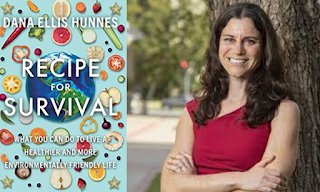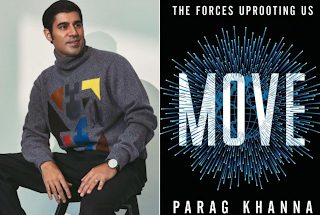All the way back in 1971, with the publication of Frances Moore Lappe’s Diet for Small Planet, the world began to take notice of the connection between what we eat, who we are, our environmental future, and the sustainability of our food supply.
Since then, the external forces that impact all of these things have brought more pressures to bear. The state of our climate and its consequences, the quality of our food, and how long we live are all going in the wrong direction. Even more problematic is that each seems to be siloed.
Dana Ellis Hunnes, in her new book, Recipe for Survival, takes a more modern and holistic approach in looking at ways to improve our health and at the same time improve the health of our planet.
My conversation with Dana Ellis Hunnes: :




